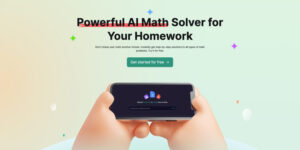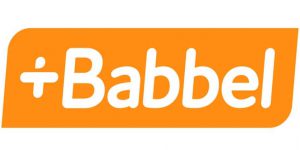
With a major transition to remote learning, the education sector has undergone a transformation that has made information easier to find and understand, fitting better into modern life. Institutions are not limited to physical classrooms anymore; learners from all corners of the world can connect for quality education. But to foster a strong remote learning culture, institutions require technology that supports engagement, collaboration, and personalization. This is where education software development company come in handy.
Overview of Education Software Development

The educational sector underwent significant transformation because of digital advances that now require every institution to develop education software. The main focus of education software development company includes building applications, platforms and tools to support remote learning and to boost engagement, while improving administrative efficiency.
The market demand for digital solutions leads educational institutions and businesses to collaborate with software development companies for building scalable, efficient and user-friendly platforms that meet various learning requirements.
The new educational standard requires appropriate technology tools, which enable students and educators to work together with enhanced learning resources, while maintaining interactive interactions. Education software development services include e-learning platforms, virtual classrooms, learning management systems (LMS) and assessment tools to deliver knowledge through different digital channels effectively.
Benefits of Education Software Development

1. Enhanced Accessibility
Remote learning software breaks down physical distance by offering learning materials to students from any global location. Remote learning software creates opportunities for students located in distant areas, disabled learners and employed adults seeking adjustable educational timetables. Students can learn without geographical limitations as remote learning software supports multiple devices and operates through cloud-based platforms.
2. Personalized Learning Experience
Education software development company uses artificial intelligence (AI) and machine learning (ML) algorithms to build customized educational routes for students. The assessment tools monitor student learning patterns with their strengths and weaknesses to create tailored educational content.
Personalized dashboards paired with adaptive learning modules and AI-driven tutoring systems create comprehensive educational experiences as they provide custom-tailored learning to each student, simultaneously boosting comprehension and knowledge retention.
3. Scalability and Flexibility
A properly designed education software solution expands with institutional growth, enabling additional users to join without experiencing performance degradation. Learning management systems (LMS) that developers create specifically adapt to the needs of institutions, no matter the size, from elementary schools to corporate training and higher education institutions.
The software keeps adapting to future requirements by integrating smoothly with external tools and providing modular learning units with flexible course organization.
4. Data-Driven Insights for Continuous Improvement
The implementation of data analytics functions within education software leads to major performance improvements in teaching and learning activities. Educational software helps faculty identify specific areas where students need help through performance analysis of student data that enables them to create specific teaching plans for each student.
Machine learning models within adaptive learning systems recommend custom content by analyzing individual student advancement and attention metrics. The combination of automated feedback tools using AI grading technology and performance tracking dashboards enables learners to identify their skills and development needs, so they achieve better results as their knowledge grows.
5. Improved Collaboration and Engagement
Remote learning faces significant difficulties when students become less engaged in their education. Education software contains various collaborative features, including discussion forums and live chat with video conferencing combined with interactive quizzes to maintain student engagement.
The virtual classrooms deliver real-time educational experiences through which students can maintain student-instructor and student-peer connections. The integration of peer assessments, collaborative group projects and game-based components increases the level of collaborative learning execution.
6. Cost-Effectiveness
Educational institutions can reduce their traditional education costs through the implementation of education software development systems. Physical classrooms, printed materials, travel expenses and infrastructure maintenance costs decrease throughout this process. Online learning platforms help educational institutions distribute their budget effectively by reducing costs and enabling higher enrollment numbers.
Also Read: How Can AI Improve The Quality Of Education?
Features of Remote Learning Culture, Trends and Innovations in Education Software Development

- Artificial Intelligence and Machine Learning: Adaptive learning systems powered by AI technology create individualized learning paths that adjust to students’ specific areas of strength and weakness. The technologies enable automatic grading systems, resource recommendations and instant feedback, enhancing the efficiency of learning processes.
- Gamification: Game-based components within learning activities with rewards and competitive leaderboards and quizzes drive better engagement and entertainment in the educational process. Students develop better knowledge retention through active participation when educators incorporate interactive challenges with competitive features into their educational design.
- VR & AR Integration: Remote learning gets transformed through Virtual and Augmented Reality technologies that provide students with fully absorbing experiences. Educational simulations, three-dimensional models and interactive environments help students understand difficult concepts better by providing them with visual understanding. This solution creates a more interactive educational experience. The innovation brings substantial value to educational branches, including science, engineering and medicine.
- AI-Powered Tutoring Systems: AI models in tutoring systems assess student performance to provide customized instruction through dynamic intelligent feedback. AI systems evaluate student understanding to detect gaps in knowledge and direct students to necessary studies with real-time performance evaluation for tailored learning in remote environments.
- Blockchain for Certification & Credentials: Students benefit from blockchain as it provides safe and reliable verification of their educational records. Blockchain-made digital certificates help students prove their achievements while keeping their records safe from tampering. Organizations and businesses can check qualifications right away to build stronger trust in digital educational records.
- Microlearning & Mobile Learning Solutions: Small learning blocks improve knowledge retention and match how people today like to study. Students benefit from mobile platforms because these systems make learning accessible at any time and in different locations from a smartphone. These solutions match perfectly with company training programs that help employees gain new skills.
- Hybrid Learning Models: The combination of live instruction with self-paced education meets the different learning styles of students effectively. Live instructor interaction and programmed self-paced study enable students to deepen their understanding of the course materials.
Also Read: Different Types of Software Development: A Complete Guide
How Much Does It Cost to Build Education Software?

The total cost for education software development company depends on various elements like platform complexity, selected technology stack, added system features and project duration. Here is an estimated cost distribution:
- Basic Education App: $10,000 – $50,000 (i.e., low-level e-learning apps, features of basic LMS, low number of users)
- Mid-Level Education Software: $50,000 – $150,000 (i.e., AI-enabled learning management system, interactive materials, cloud-based storage)
- Advanced Education Platform: $150,000+ (i.e., AI-enabled adaptive learning, virtual reality integration, blockchain credentialing, multi-lingual interfaces)
Additional costs involved in education software development company are focused on UI/UX design, third-party system integrations, testing activities and post-launch maintenance requirements. Partnering with a dependable education software development company leads to suitable educational software solutions that match your requirements, while maintaining cost-effectiveness and high quality standards.
Build a Scalable Custom Educational Software with Weetech Solution

Weetech Solution is an award-winning software development company that provides education software development services. At Weetech Solution, we offer end-to-end software development services to provide scalable & feature-rich learning platforms for educational institutions, corporate training providers, and ed-tech startups.
Why Choose Weetech Solution?
- Custom Software Solutions: Solutions created to meet your specific learning needs.
- Advanced Technologies: Specialization in innovative e-learning solutions using AI, ML, VR/AR, and blockchain.
- Enterprise-Level Solutions: On-demand scalable infrastructure.
- User-Centric Design: Intuitive UI/UX assuring seamless learning experience.
- End-to-End Development: Building everything from the ground up, considering testing, deployment, and maintenance of the software to maintain high levels of performance and reliability.
Weetech Solution will help you design a robust and future-ready remote learning system for better education accessibility and engagement.
Conclusion
In conclusion, the future of remote learning is being shaped by education software development company that delivers modern, customizable education software development solutions. Educational institutions and businesses working with dependable software development companies can develop learning platforms that provide scalable and effective learning solutions. contact us today!
The digital learning success of educational institutions depends on their investment in education software development services, since trends like AI-driven learning, gamification and VR will transform the sector in the long term.






